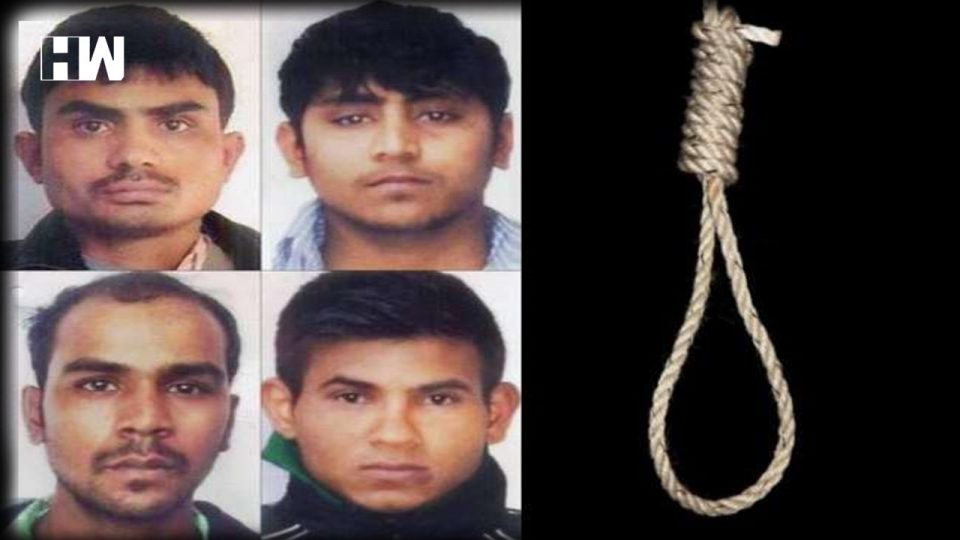The brutality of Nirbhaya rape & murder had outraged the nation bringing thousands on the streets in protest, which led to key changes in the system.
New Delhi| On Dec. 16, 2012, the medical student who came to be known as “Nirbhaya”, was fooled into boarding a bus, assaulted and tortured so brutally that she died days later.
Six men, including one just short of 18, were arrested after the 2012 gang rape of a young woman on a moving bus. One of the main accused, Ram Singh, was found hanging in his jail cell. The teen was released after three years in a reform home.
Two previous dates of hanging – January 22 and February 1 – came and went as the convicts filed petition after petition to stall the execution. On February 5, the Delhi High Court ordered that all four would have a week to exhaust all their legal remedies, including mercy petitions to the President, and said they cannot be hanged separately.
All the accused in the Nirbhaya rape and murder case were arrested and charged with sexual assault and murder. One of the accused, Ram Singh, died in police custody from possible suicide on 11 March 2013 in the Tihar Jail. According to some published reports, the police say Ram Singh hanged himself, but defence lawyers and his family allege he was murdered. The rest of the accused went on trial in a fast-track court; the prosecution finished presenting its evidence on 8 July 2013.
The juvenile was convicted of rape and murder and given the maximum sentence of three years’ imprisonment in a reform facility, as per the Juvenile Justice Act 2000. On 10 September 2013, the four remaining adult defendants were found guilty of rape and murder and three days later were sentenced to death by hanging. In the death reference case and hearing appeals on 13 March 2014, Delhi High Court upheld the guilty verdict and the death sentences. On 18 December 2019, the Supreme Court of India rejected the final appeals of the condemned perpetrators of the attack.
Also Read: Who is letting our “Betis” down?
On 7 January 2020, a judge in New Delhi issued death warrants for all four men, scheduling their executions for 6:00 am on 3 March 2020. The authorities alleged that the four adult convicts were “intentionally delaying” and “frustrating” the legal process in this case by filing their pleas in stages so that their execution could be postponed.
As a result of the protests, in December 2012, a judicial committee was set up to study and take public suggestions for the best ways to amend laws to provide quicker investigation and prosecution of sex offenders. After considering about 80,000 suggestions, the committee submitted a report which indicated that failures on the part of the government and police were the root cause behind crimes against women.
In 2013, the Criminal Law (Amendment) Ordinance, 2013 was promulgated by President Pranab Mukherjee, several new laws were passed, and six new fast-track courts were created to hear rape cases. Critics argue that the legal system remains slow to hear and prosecute rape cases, but most agree that the case has resulted in a tremendous increase in the public discussion of crimes against women and statistics show that there has been an increase in the number of women willing to file a crime report.
As an independent media platform, we do not take advertisements from governments and corporate houses. It is you, our readers, who have supported us on our journey to do honest and unbiased journalism. Please contribute, so that we can continue to do the same in future.

